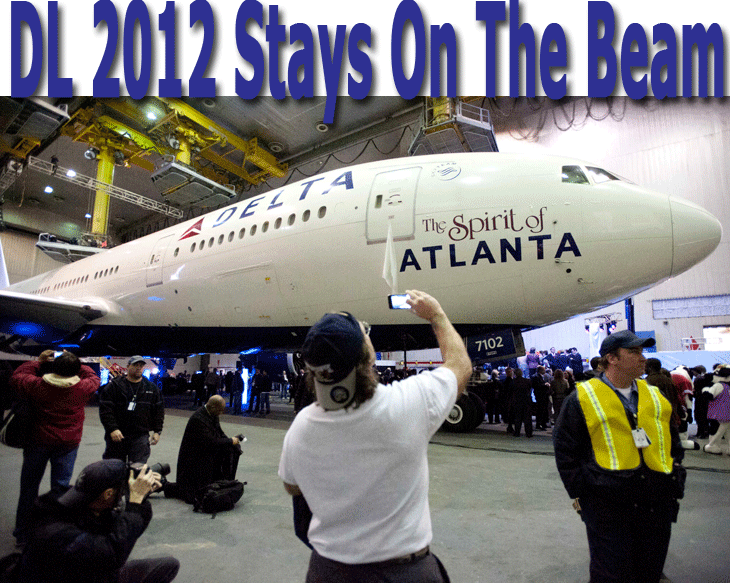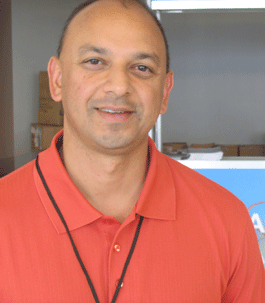| 
 In
the 1940s, Delta Air Lines DC-3s navigated the skies in the hands of
pilots who listened for the steady tone of radio transmitters on the
ground, which indicated whether the flight was “on the beam.” In
the 1940s, Delta Air Lines DC-3s navigated the skies in the hands of
pilots who listened for the steady tone of radio transmitters on the
ground, which indicated whether the flight was “on the beam.”
Today, if you look into the eyes of Neel
Shah, there is the beam of steely determination as he moves towards
building Delta Cargo into a billion dollar business.
But staying on track in 2011 may be a
bit tougher, as today competition and market conditions demand that
nothing be taken for granted; innovation and the ability to execute
in a precise manner are absolutely necessary, a fact unheard of back
when ceiling zero called in radio operations.
Right now, the cargo chief of the biggest
airline in the world seems to be everywhere at once as he goes about
enhancing the fortunes and visibility of air cargo at the air carrier
that dominates Atlanta, Georgia.
It’s one of the fastest growing
gateways in North America in 2012. In October, The International Air
Cargo Association (TIACA) will roll into town with its Air Cargo Forum
that promises to deliver up to 10,000 shippers and transportation executives,
and it will be Delta Cargo served up on the half shell to face more
than a passing amount of scrutiny.
Delta is host carrier to the big cargo
show, and Atlanta is the big enchilada to Delta, serving as home base
and the place for all the hopes and the day-to-day reality of building
the dream.
“Priority focus for us continues
to be staying sharp with our operations,” says Neel Shah, Delta
Cargo senior vice president and chief cargo officer, putting priorities
into immediate focus.
“No excuses either; if we let operations
go, there is simply nothing else.
“So while we are innovating and
building our offering as never before, the attention to actual service
delivery is our highest priority.
“In terms of sales, I know that
we have the best global team in the industry, period.
“We get the word out and are also
always within arms reach of all our customers.”
Neel Shah joined Delta in January 2008,
having left United Airlines Cargo. He hit the ground running, transforming
Delta Cargo into one of the world’s most extensive operations.
“In his first six months, Neel drove
the division to significantly improved revenue, despite record high
fuel prices,” said Neel’s boss at DL, Ed Bastian, who is
also the carrier’s CFO.
“That track record has continued,
with Delta Cargo consistently exceeding its revenue targets and leading
the industry in revenue and profitability performance,” Mr. Bastian
added.
Neel is well recognized in the industry
and the community as he sits on the Air Transport Association's Executive
Cargo Council, the Sky Team Cargo Executive Board, and is an executive
appointee of Governor Sonny Perdue to the Georgia State Workforce Investment
Board and the GDOT Private Sector Advisory.
Recently, Neel said he was targeting Delta
Cargo to be a billion dollar business, sooner rather than later.
Apparently, he has the chops and the team to do just that.
Looking ahead at 2012, Neel declares:
“We think our product offering and
network will allow us to grow out of whatever business condition exists
in 2012.
“That said, we of course keep close
to our customers, while taking nothing for granted.
“When times are tough, the instinct
of many is to cut back on everything and kind of recede into a shell.
“I think just the opposite.
“Right now is a good time to be
out in the market engaging the customer as never before, whilst showing
how air cargo can significantly improve bottom lines and deliver as
promised every step of the way.”
Geoffrey/Flossie
|



